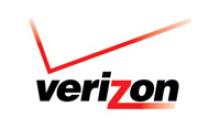Vermont Network Takes Local Ownership to Next Level
Vermont's East Central Fiber-Optic Network (ECFiber) has finished its second round of financing. We noted that the network had exceeded its financing goals at the beginning of this year by raising over $1 million and subsequently began connecting rural homes with its next-generation network. (See all of our ECFiber coverage here.)
The network is now connecting 120 households, a bit below its goal of 164 for the end of the calendar year... but it also had to deal with an unexpected hurricane (Irene) that seriously disrupted the entire state and kept fiber-splicers running ragged.
ECFiber has just completed its second round of financing. While the first round was dominated by a few major investors, the second round had a broader base -- a sign that many in the community have embraced the approach. From the ECFiber press release:
ECFiber is using an innovative funding method to extend its network, supported by local citizens who lend funds that enable build-out to local neighborhoods within and across member towns. Citizens who invest as little as $2500 allow ECFiber to reach all households along designated routes. ECFiber determines where it will build by choosing routes that reach the greatest number of unserved businesses and households, which are then connected to ECFiber’s state-of-the-art fiber-optic service.These people are literally investing in themselves. ECFiber is an InterLocal Contract with a Governing Board composed of a representiative from each member town (of which there are 23). Investors are purchasing tax exempt 15 year promissory notes that effectively earn 6% interest (due to the one year holiday from interest and principal). They have raised $340,000 in this round of financing, which will allow the network to pass 60-65% of Barnard's 950 residents.




 As long as we are talking about Verizon shedding its rural investments, let's take a look at how Frontier is doing since it inherited thousands upon thousands of FiOS customers as part of its recent deal with Verizon.
As long as we are talking about Verizon shedding its rural investments, let's take a look at how Frontier is doing since it inherited thousands upon thousands of FiOS customers as part of its recent deal with Verizon.